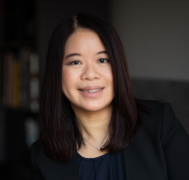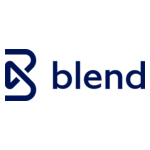Building a world for the 99%
Rather than catering to the top 1%, what if the world was built with the needs of the other 99% of the global population in mind?

We have the technology to create a more supportive ecosystem for millions of SMEs worldwide
Where ordinary citizens and small business owners, regardless of how much assets they own and where they are from, can have access to fair and affordable financial services, along with tools that enable them to go after their dreams beyond borders.
Where our basic needs are met and we don’t have to worry about living in poverty after retirement because we have exhausted all our savings to pay for healthcare.
Where we don’t get trapped in endless debt cycles, wondering how we’ll ever be able to pay off the insurmountable student loans and credit card bills.
What if we think differently with data?
Removing barriers across borders
Consider Southeast Asia, home to over 660 million people across 10 countries, many of them young and tech-savvy. As such, Southeast Asia is adopting digital financial services at a rapid pace, with digital payments now making up more than 50% of the region’s transactions. It is no wonder then that the revenue generated by the digital economy has increased eight-fold since 2016, reaching $100bn according to the recent ‘Google, Temasek, and Bain, e-Conomy SEA 2023’ report.
While connectivity has improved three-fold since 2015 in some rural areas, consumers outside of metro cities are facing a widening digital economic divide. Investments in digital literacy and physical infrastructure aside, new business models are needed to remove barriers to foster cross-border activity in the digital economy.
One such example is the collaboration between Ant International and local e-wallet providers GCash in the Philippines and TrueMoney Wallet in Thailand as part of the Alipay+ cross-border mobile payment service, which enables consumers across Asia to travel and pay with their local wallet while local merchants build out cross-border consumer engagement and digital marketing across the region. The service has since connected over 88 million merchants to 1.5 billion consumer accounts over 25 e-wallets and banking apps.
Bridging communities
These local merchants, also known as small and medium enterprises (SMEs), are crucial to our economies. They represent about 90% of our businesses globally, and more than 50% of total employment. According to The World Bank, 600 million jobs will be needed by 2030 to absorb the growing global workforce, which makes SME development a high priority for many governments around the world.
Unfortunately, this segment of the market has been historically underserved, with as much as 40% of firms in developing economies having unmet financial needs, according to the IFC. They are less likely to be able to secure bank loans due to lengthy application processes and lack of collateral, relying instead on their own funding or cash from friends and family.
Luckily, by leveraging data analytics and AI to gain better insights and assess risks, more fintech companies are stepping up to fill the gap. In China, MYbank, for example, has streamlined the lending process with its “310 model”, offering collateral-free business loans online that take less than three minutes to apply for, one second to approve, and with zero human interaction. Similarly, in India, Indifi leverages new data sources to assess the credit worthiness and performance of SMEs and provides them with access to multiple lenders based on the results.
AI also plays a crucial role in facilitating financial inclusion along the supply chain. For its agricultural business customers, MYbank utilises satellite remote sensing technology to identify cash crops and forms of cultivation and to estimate the agricultural output more accurately, enabling smallholder farmers to receive online loans to buy seeds, fertilizers, and other essentials. Aquaconnect, based in Southeast Asia, also leverages similar technology to validate between fish and shrimp ponds and to predict the days of culture, bringing transparency and matching the supply with demand along the aquaculture value chain. This also enables the sellers and buyers to access formal credit to support their businesses.
The challenge of being unbanked or underbanked is not limited to SMEs in emerging economies either. In the US, for example, many SMEs lack the proper tools to streamline their administrative tasks, taking precious time and focus away from growing the business. According to Finli, a women-founded fintech start-up that caters to the needs of small business owners, 40% of their customer base are solopreneurs, and on average, they can help them save five hours per week with their tool. Imagine the opportunity to serve not only their core financial needs, but also ancillary services needed to operate a business? An integrated marketplace of sorts for SMEs from a trusted brand. As the saying goes, time is money.
Like their overseas counterparts, access to credit presents a familiar challenge for businesses in the US. And the story is even more bleak for underrepresented demographics. According to the latest Small Business Administration (SBA) lending report, credit for Black and Hispanic-owned businesses is hard to come by, and they are more likely to be denied loans. Meanwhile, sadly, though perhaps somewhat unsurprisingly, the majority of the total distributed dollars go to male-owned businesses.
Towards a fairer and more inclusive world
We have the power and the technology to transform the credit process and create a more supportive ecosystem for millions of micro and small business owners worldwide.
Behind each of these businesses are individual owners and teams of workers who are working hard to keep their economies growing and their families financially secure.
By thinking differently with data, we can tap into an immense opportunity to serve an important segment of the economy and create a fairer and more inclusive world for more people — beyond businesses.
 About the author
About the author
Theodora Lau is the founder of Unconventional Ventures, a public speaker, and an advisor. She is the co-author of The Metaverse Economy (2023) and Beyond Good (2021), and host of One Vision, a podcast on fintech and innovation. She was named one of American Banker’s Most Influential Women in FinTech in 2023. She is also a regular contributor and commentator for top industry events and publications, including BBC News and Finovate.










































